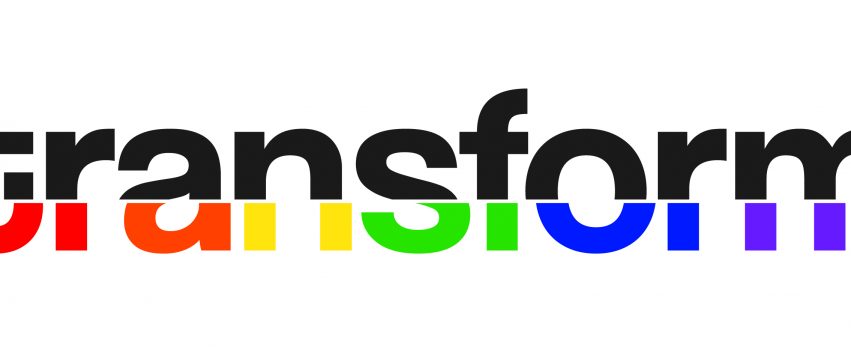While Malta has one of the best legal frameworks worldwide with respect to the recognition and protection of LGBTIQ (lesbian, gay, bisexual, trans, intersex and queer) persons, the process of mainstreaming these legal provisions across all public services is still ongoing.
When LGBTIQ people access health services, practitioners often assume heterosexuality and use language, accordingly, meaning LGBTIQ people experience exclusion and invisibility. For trans and intersex people, health professionals using pathologising language and misgendering can result in avoidance of healthcare, as well as other problems.
For this reason, the Human Rights and Integration Directorate within the Ministry for Justice, Equality and Governance submitted an application under the Rights, Equality and Citizenship Programme of the European Union to tap into funds in order to ensure that LGBTIQ persons enjoy equal and non-discriminatory access to health services by enhancing the awareness and capacity of those involved in mainstream healthcare provision to meet their needs. The project TRANSFORM: Raising standards of health care service provision for LGBTIQ people has been awarded successfully and it will run until October 2021.
The main objectives of this project are:
- Ensure LGBTIQ persons enjoy equal and non-discriminatory access to health services by enhancing the awareness and capacity of those involved in mainstream healthcare provision to meet their needs;
- Enhance the capacity of medical and psychosocial practitioners to meet the health needs of trans persons;
- Provide resources that inform LGBTIQ patients of their rights and that signpost healthcare services as being LGBTIQ inclusive; and
- Raise awareness among LGBTIQ persons on specific health risks and health services.
It aims to do so primarily by enhancing the capacity of a range of health practitioners to address the health needs of LGBTIQ patients in a sensitive manner that acknowledges the specific challenges often encountered by LGBTIQ persons in their everyday life which impact on their health and wellbeing and by making practitioners more aware of heteronormative assumptions that result in inequalities in access to healthcare of LGBTIQ persons.
The project will also conduct awareness raising activities and provide resources that can assist healthcare providers in communicating their services as safe and inclusive spaces for LGBTIQ patients needing their care. Several resources are aimed at the LGBTIQ community, based on the increased likelihood of experiencing a number of health-related conditions such as mental health; sexual health; substance misuse; as well as inform on existing health services and how to access them.
The project aims to benefit from the exchange of good practices through partnership with the Ghent University Hospital Trans Info-Point (TIP) and Gender Team. Through this partnership, it aims to build the knowledge base of GPs who are often the first point of call for all persons, including LGBTIQ persons suffering from generic ailments or requiring medical advice or referral to a specialist healthcare provider. Specialised training will also be provided to emergency services personnel. These trainings would be complimented by a website to which health practitioners could refer for information on trans patient healthcare as well as signposting to specialist services such as those provided through the GWC where required.
Training sessions are organised in collaboration with the Office of the Deputy Prime Minister within the Ministry for Health, the Malta Union of Midwives and Nurses (MUMN) and the Malta College of Family Doctors (MCFD) as well as Ghent University Hospital and Steward Health Care. These sessions are aimed at various healthcare practitioners, managers and practice nurses, and front office staff which are the first point of contact for healthcare provision.
ILGA Europe and Transgender Europe are also involved in the project as associate partners and together with the CoE SOGI Unit will increase outreach and dissemination of project results on European and international platforms.
Through this project, the needs to be tackled are:
- The training of 60 management staff and practice nurses involved in the provision of health services on facilitating access to healthcare of LGBTIQ people. These managers and practice nurses will act as multipliers within the teams they manage.
- The training of 120 health practitioners to raise awareness and increase knowledge on how to address the health inequalities experienced by LGBTIQ persons.
- The training of 80 general practitioners (GP’s) in Malta and Gozo ensuring their practices are inclusive of LGBTIQ patients and providing specialised knowledge on the treatment of trans patients for generic conditions to be delivered by experts from Ghent University Hospital.
- The training of 25 emergency personnel in Malta and Gozo providing specialised knowledge on the treatment of trans patients presenting at casualty to be delivered by experts from Ghent University Hospital.
- Sensitivity training to 300 reception staff working in healthcare settings in both Malta and Gozo.
- The exchange of good practices through partnership with Ghent University Hospital’s multi-disciplinary Gender Team with Malta’s Gender Wellbeing Clinic Multi-Disciplinary Team.
- The development of a website aimed at general practitioners, psychosocial professionals, nurses, midwives, emergency personnel and other health practitioners modelled on the one developed by Ghent University Hospital on trans healthcare;
- The conduction of awareness, information and social media campaigns aimed at promoting healthcare services as welcoming and safe spaces for LGBTIQ persons; and
- The conduction of awareness, information and social media campaigns aimed at the LGBTIQ community on health risks associated with this cohort.



